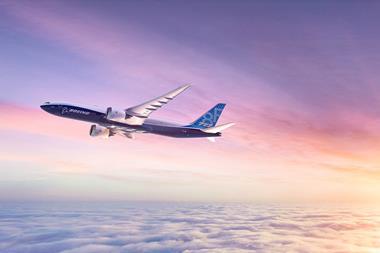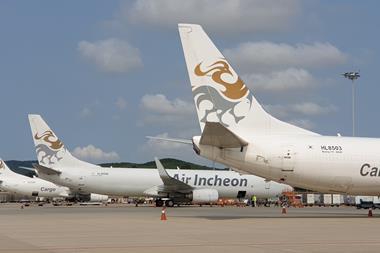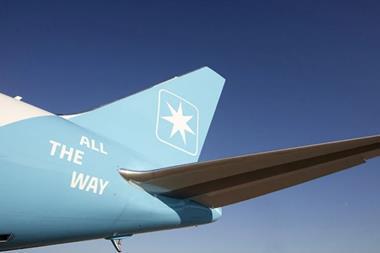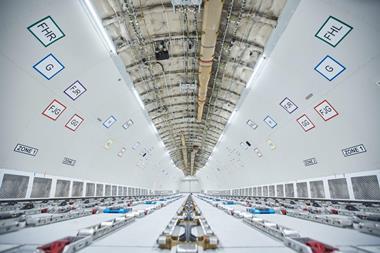Aircraft manufacturer ATR's latest market outlook predicts that the turboprop freighter fleet will increase by 45% over the next 20 years, with e-commerce fuelling demand.
The outlook was released at this week's Farnborough Airshow and predicts that the global fleet of turboprop freighters will rise from 380 in 2021 to 550 in 2041 – an increase of 45%.
The forecast highlights that turboprops currently make up 94% of the regional freighter fleet.
"Freighters have come to play an essential role in supporting regional communities, partly due to the acceleration of the digital economy and e-commerce," ATR said.
Southeast Asia, China and Latin America have been identified as areas of increased regional demand, as customer expectations for faster delivery expands beyond key primary gateways in each region.
The pandemic and need to maintain supply chains will also fuel demand.
"The growth in freighters’ social value during the pandemic can be seen in their ability to keep flying goods and services to remote locations - distributing sanitary equipment and delivering vaccines in a timely and reliable way," ATR said.
"Freighters were also called on to ensure production lines were able to keep operating around the world when supply chains faltered.
"As a response to these global changes logistics strategies have shifted. Businesses are focusing on supply chain resilience, building redundancy (i.e. blending sea/air/road transport
options) into their supply-chains and vertically integrating to keep control and retain value."
The report states that 76% of the current turboprop freighter fleet is placed in mature markets and therefore growth will be highest in emerging economies; the Latam & Caribbean region represents 4% of the overall market; Asia Pacific 7%; Africa & Middle East 13%; Europe & CIS 37%; and North America 39%.
The report also finds that demand for 30-seater size turboprop freighters, which currently make up 38.7% of the overall freighter market, will disappear as feedstock of aircraft of that size dries up.
"As such, 70-seaters will become the aircraft of choice for operators with ample feedstock for conversions as well as newbuilt freighters and larger capacities to cater for increased volumes," ATR said.
Airbus and Boeing have also recently released updates on their expectations for the overall freighter fleet.
Boeing has predicted an 80% increase over the next 20 years, while Airbus expects a 51.2% increase.














